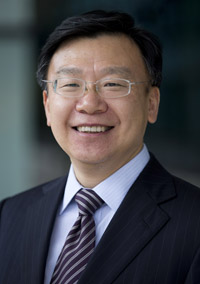Accelerating public health actions and addressing new challenges during the pandemic
The Alcohol, Drugs and Addictive Behaviours (ADA) Unit, within the Department of Mental Health and Substance Use at WHO Headquarters organizes, for the third time, the WHO global Forum on Alcohol, Drugs and Addictive Behaviours (FADAB). The primary goal of FADAB is to strengthen partnerships and collaboration among public health-oriented organisations, networks and institutions to accelerate and sustain public health actions in a rapidly changing world.
The Third FADAB takes place in the context of the evolving COVID-19 pandemic that presents new challenges for public health actions aimed at reducing the health and social burden due to use of alcohol, psychoactive drugs and addictive behaviours. At the same time, the pandemic has prompted development and acceleration of some policy and program measures and adjustments that have the potential to bring public health benefits after the pandemic is over. Lessons learned during the pandemic and priorities for better preparedness for health emergencies regarding substance use and addictive behaviours will be discussed during the Forum.
"Built upon the success of the first and second WHO Forums on Alcohol, Drugs and Addictive Behaviours held in 2017 and 2019 in Geneva, the Third Forum is envisaged to boost international activities led or implemented by WHO in reducing the health and social burden associated with substance use and addictive behaviours. Against the background of the evolving COVID-19 pandemic, we need to accelerate public health actions through enhanced international collaboration and partnerships. There is no other way to advance achievement of the relevant SDG 2030 targets, including SDG target 3.5 that calls for strengthening prevention and treatment of substance use and substance use disorders."

and Noncommunicable Diseases
World Health Organization
Topics covered at this year`s Forum
In February 2020, the WHO Executive Board requested the WHO Director-General to develop an action plan (2022-2030) to effectively implement the Global strategy to reduce the harmful use of alcohol as a public health priority and to develop the technical report on the harmful use of alcohol related to cross-border alcohol marketing. The Third FADAB provides an opportunity to discuss drafts of the global action plan, the above-mentioned technical report and implementation of the SAFER initiative to reduce the harmful use of alcohol.
The Third Forum will also address progress achieved after five years of implementation of commitments made at the UN General Assembly Special Session on the world drug problem, and opportunities for enhancing public health actions in this area.
Despite the challenges presented by the COVID-19 pandemic, the Third FADAB will discuss progress achieved in relation to SDG 2030 health target 3.5 on strengthening prevention and treatment of substance use and substance use disorders with a special focus on progress with achievement of Universal Health Coverage for people affected by disorders due to substance use and addictive behaviours.
The Third Forum will provide an opportunity for WHO Secretariat and its partners to present key products and activities that have been or are in the process of being developed to support countries in their efforts to reduce the public health burden due to substance use and addictive behaviours.
Finally, the Third FADAB will also discuss new opportunities and mechanisms for intensified international collaboration on public health dimensions of alcohol, drugs and addictive behaviours in line with WHO strategic objectives to promote health, keep the world safe and serve the vulnerable.
The forum is by invitation only.
If you have not received an invitation but would like to attend, you can still fill in the form and write a few lines on why you would like to participate, based on which we will consider your attendance to the Forum.
For more information please send an e-mail to msd-ada@who.int

